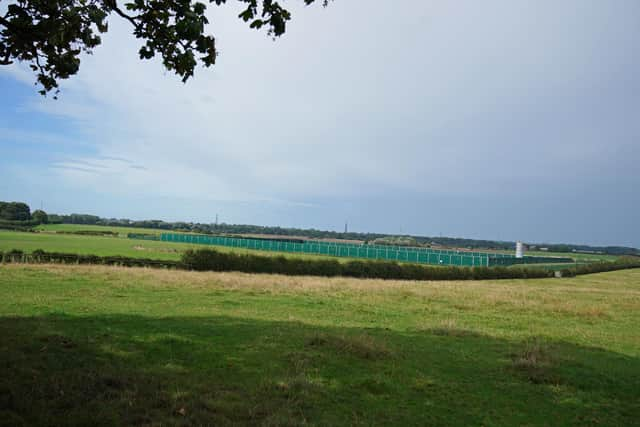Huge swathes of Yorkshire could be opened up to fracking under Government plans
Exploration licences have been issued by the Government for the majority of South Yorkshire and East Riding, as well as large parts of North Yorkshire, and some of West Yorkshire.
It comes as renewed pressure is placed on the Government by the industry to lift acceptable earthquake limits.
Advertisement
Hide AdAdvertisement
Hide AdThe Government says fracking could help improve energy security in the UK, and provide a lower-carbon alternative to coal or oil-produced energy. It also hopes it could be a significant revenue generator.


But campaigners argue it will have a detrimental impact on environments both locally and globally, and that any impact on energy prices would take years to materialise, and be negligible at best because they would be sold in a global market.
Burning more hydrocarbons will exacerbate climate change.
The most recent round of exploration licences were issued by the Oil and Gas Authority - since renamed the North Sea Transition Authority (NSTA) - in 2014.
It offered 159 licences, of which around half are in Yorkshire.
Advertisement
Hide AdAdvertisement
Hide AdExploration licences do not give the holders permission to drill - they still need planning permission and permits from the Environment Agency, Health and Safety Executive and final consent from the NSTA.
In addition, the Government has said it would only allow fracking ‘where there is local support’, although it is unclear how this would be judged. Previous exploration has seen significant local campaign groups formed to resist development.
Holders of exploration licences are also not confined to fracking - conventional extraction is covered by the same licence.
Beverley-based Rathlin Energy, for example, holds one licence in Yorkshire, but a spokesman confirmed to the Yorkshire Post it has no plans for fracking, focussing instead on conventional extraction.
Advertisement
Hide AdAdvertisement
Hide AdFracking - technically known as hydraulic fracturing involves drilling small but very deep holes, and extracting gas from rock formations by injecting fluid at high pressure.
The gas extracted is the same natural gas that is obtained from conventional gas fields, such as the North Sea.
Environmental groups have long campaigned against the use of fracking.
A spokesman for Friends of the Earth said fracking was ‘by far’ the most unpopular and ineffective way of tackling the energy crisis, and that people were right to be alarmed by proposals to ‘water down’ earthquake regulations.
Advertisement
Hide AdAdvertisement
Hide Ad“When these regulations were introduced by the government 10 years ago, the fracking industry accepted them. But after triggering much larger earthquakes than expected, they now want to weaken them.
“Fracking has already proven to be deeply unpopular with communities - moves like this would only strengthen opposition.
“Calls by the industry for the government to approve fracking developments instead of councils, should also be resisted. Riding roughshod over local opposition would make a mockery of the prime minister’s claim to only back shale gas extraction where there is local support."
Charles McAllister, of trade body UK Onshore Oil and Gas, backed calls for earthquake restrictions to change, and said with current levels of consumption it is estimated there are enough gas reserves for 50 years.
Advertisement
Hide AdAdvertisement
Hide Ad“Under the current regulatory framework, fracking must stop if a 0.5 is reached on the Richter Scale. For context, according to a study by Liverpool University, what is felt at the surface from an event of this size is the equivalent of sitting down on an office chair. If the seismicity regulations applied to the shale gas sector were applied to the construction, quarrying or geothermal industry, none of them would be able to operate in the UK. Our ask is for parity in the regulatory framework”.
